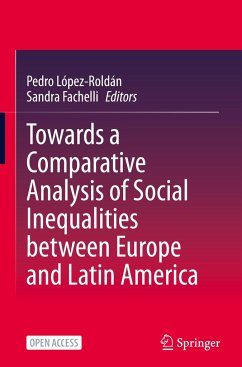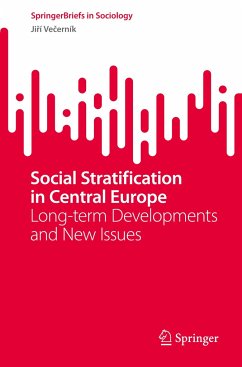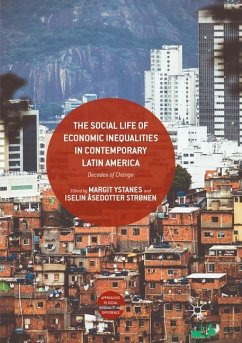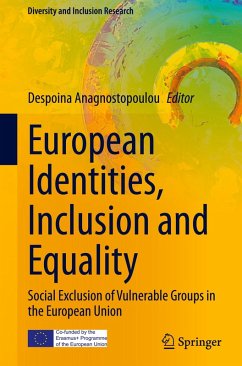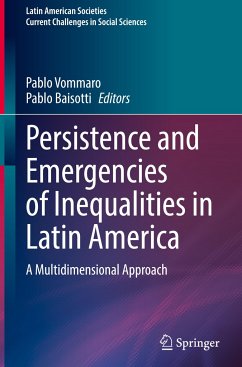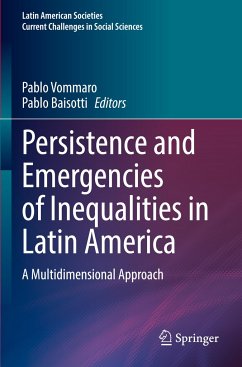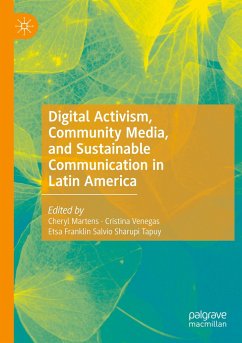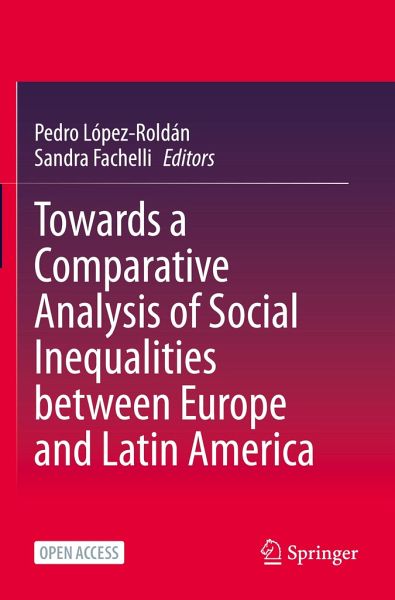
Towards a Comparative Analysis of Social Inequalities between Europe and Latin America
Versandkostenfrei!
Versandfertig in 6-10 Tagen
53,99 €
inkl. MwSt.

PAYBACK Punkte
27 °P sammeln!
This open access volume identifies the common and specific aspects of social mechanisms that generate inequalities, through comparative analyses of different dimensions in which inequalities are expressed. It includes studies on social inequalities in 5 European and 5 Latin American countries, along 11 thematic axes: inequalities in the labour market and labour trajectories; asymmetries in the relationship between training and employment; inequalities in work and family life; educational inequalities; geographical and social inequalities: ethnicity and language; social inequalities, migration ...
This open access volume identifies the common and specific aspects of social mechanisms that generate inequalities, through comparative analyses of different dimensions in which inequalities are expressed. It includes studies on social inequalities in 5 European and 5 Latin American countries, along 11 thematic axes: inequalities in the labour market and labour trajectories; asymmetries in the relationship between training and employment; inequalities in work and family life; educational inequalities; geographical and social inequalities: ethnicity and language; social inequalities, migration and space; uncertainty, strategies, resources and capabilities; inequality of opportunity: intergenerational social mobility; social policies; gender inequalities; and research methodology. This volume is the result of a large collaborative project on social inequality funded by the European Commission: the International Network for Comparative Analysis of Social Inequalities. Taking into account diverse perspectives and approximations, the collaborators have created a general analytical framework as a model of analysis of social inequalities. The various contributions in this volume help readers gain a global outlook and help reflect on social inequalities in a comparative perspective. This volume addresses social science graduate and postgraduate students, researchers, social policy makers, as well as a broader academic audience interested in social inequality.





